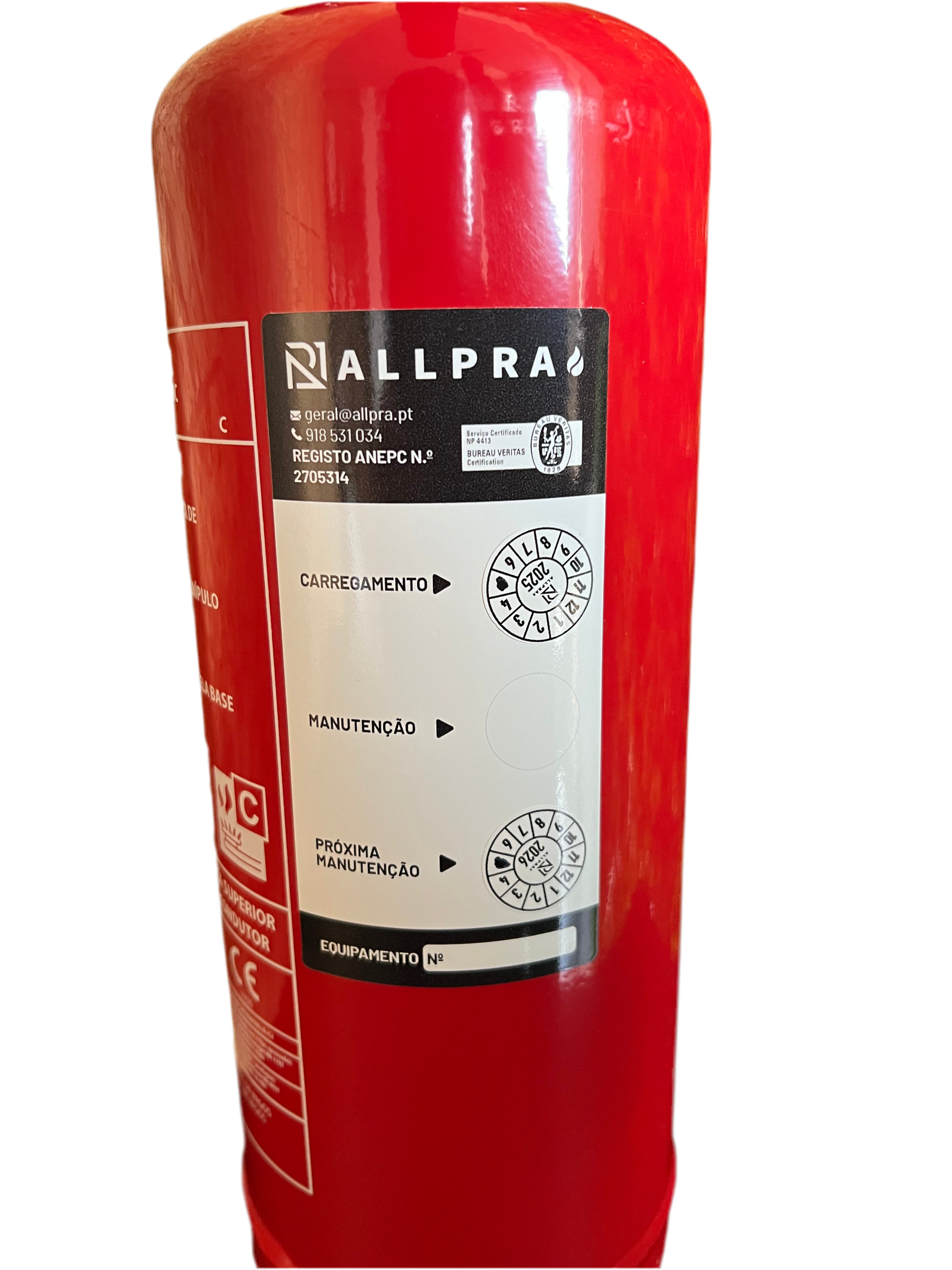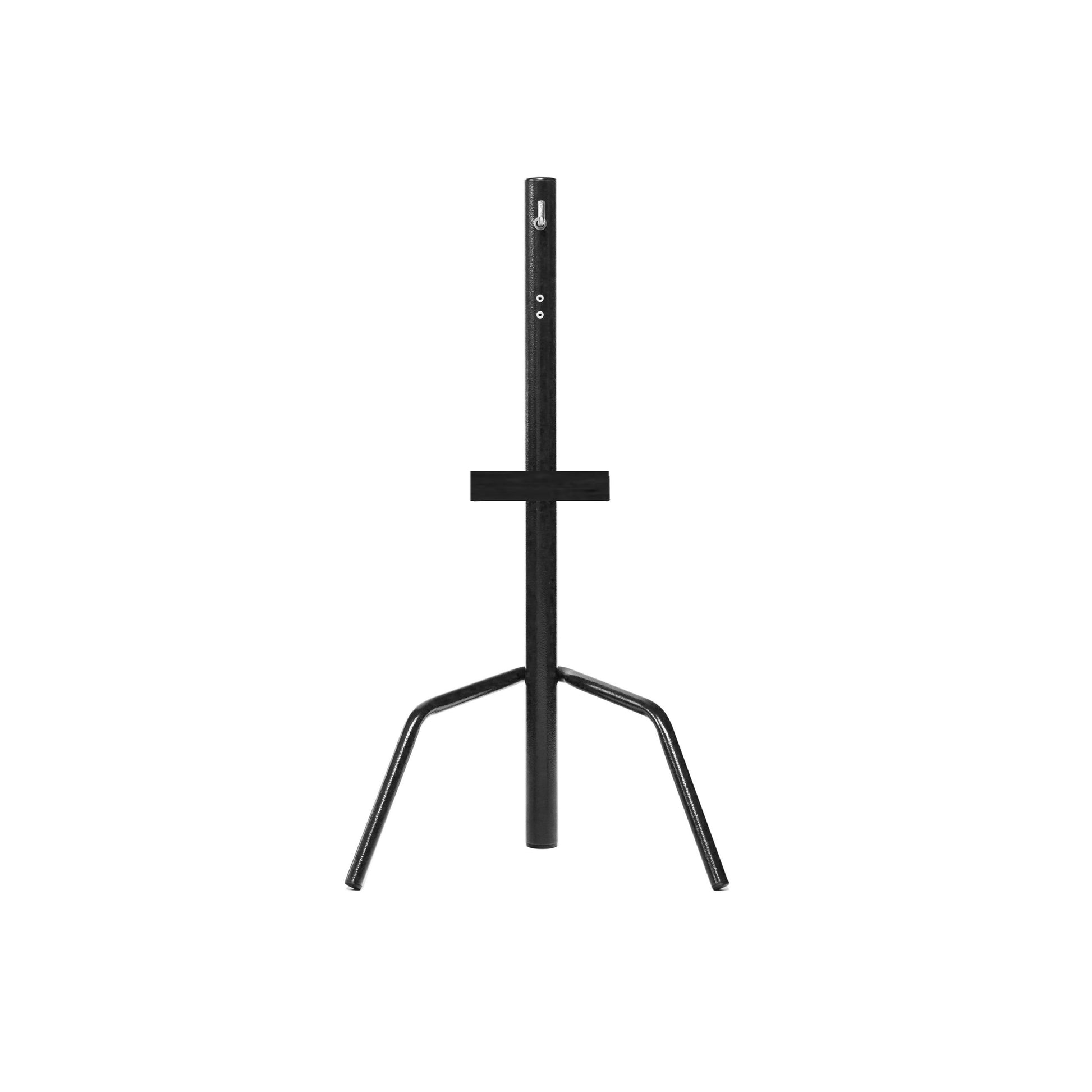ExtintoresOnline.pt
ABF 2L certified fire extinguisher
ABF 2L certified fire extinguisher
Entrega Prevista:
Couldn't load pickup availability
Complete Protection for Your Safety
The ABF Fire Extinguisher is the definitive solution for fire protection in residential, commercial and industrial environments. Designed to effectively combat the three main types of fire (A, B and F), this extinguisher guarantees the safety and peace of mind that you and your assets deserve.
Main Features:
- ABF Classification : Effective against fires in solid materials (class A), flammable liquids (class B) and oils and fats (class F), providing a versatile and comprehensive response in emergency situations.
- Capacity and Efficiency : Available in different capacities, the ABF Extinguisher is manufactured with high quality materials, ensuring durability and superior performance in extinguishing flames.
- Easy Handling : Equipped with an ergonomic valve and an intuitive trigger system, it allows quick and efficient handling, even by inexperienced users.
- Safety Certification : Strictly complies with all national and international safety standards, ensuring its effectiveness and reliability in any circumstances.
- Simplified Maintenance : Designed to facilitate periodic inspections and maintenance, extending the useful life of the extinguisher and keeping it operational at all times.
Applications:
Ideal for commercial kitchens, restaurants, mechanical workshops, flammable product storage areas and any location where there is a potential risk of fire. The ABF Fire Extinguisher is an indispensable tool for ensuring safety and fire protection.
Why choose the ABF Fire Extinguisher?
Choosing an ABF Fire Extinguisher means investing in safety and peace of mind. With advanced technology and high efficiency in extinguishing different types of fire, this extinguisher is the right choice for those who do not compromise on quality and protection. Don't wait until a fire happens - be prepared with the best equipment available on the market.
Share
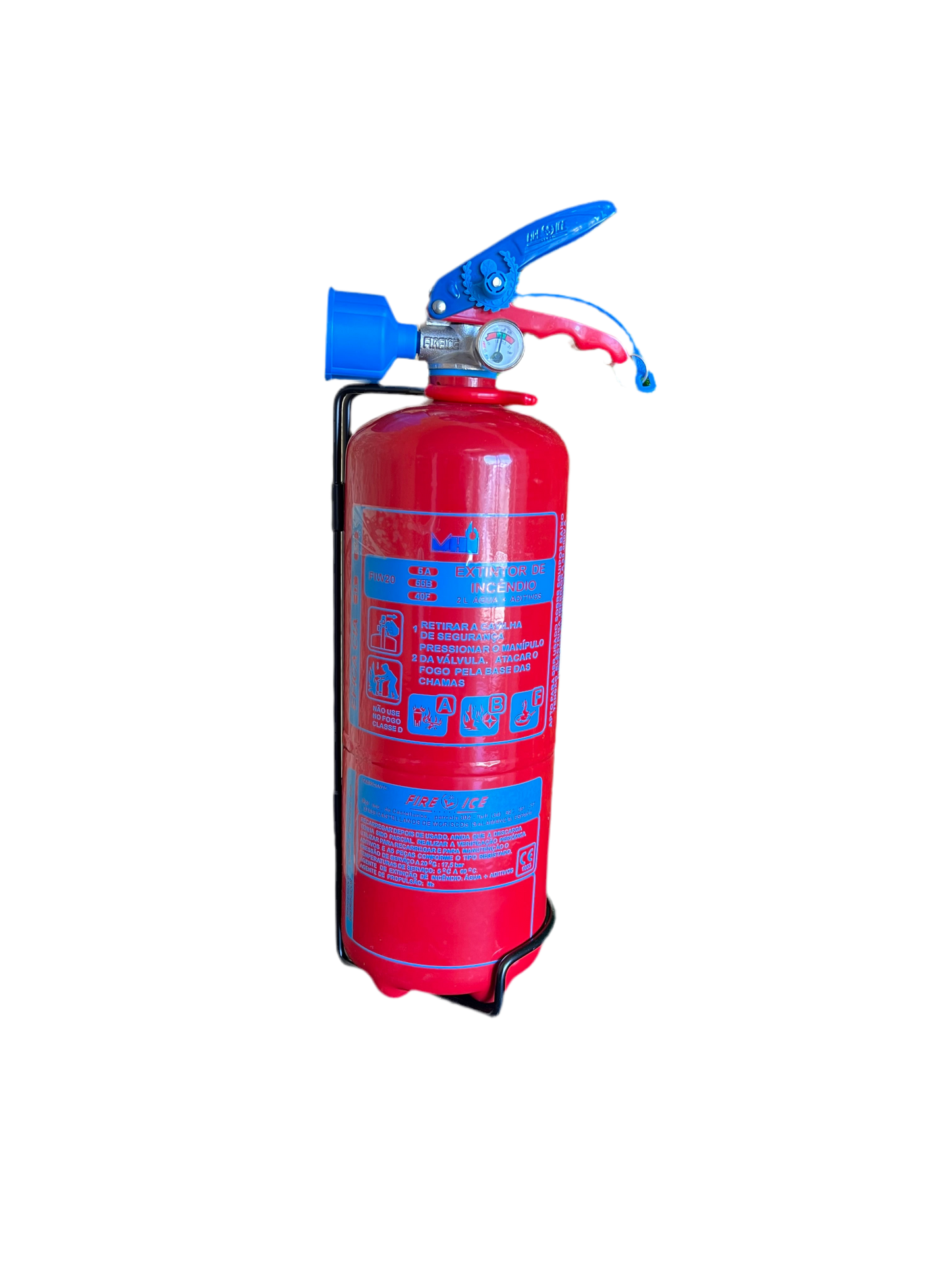
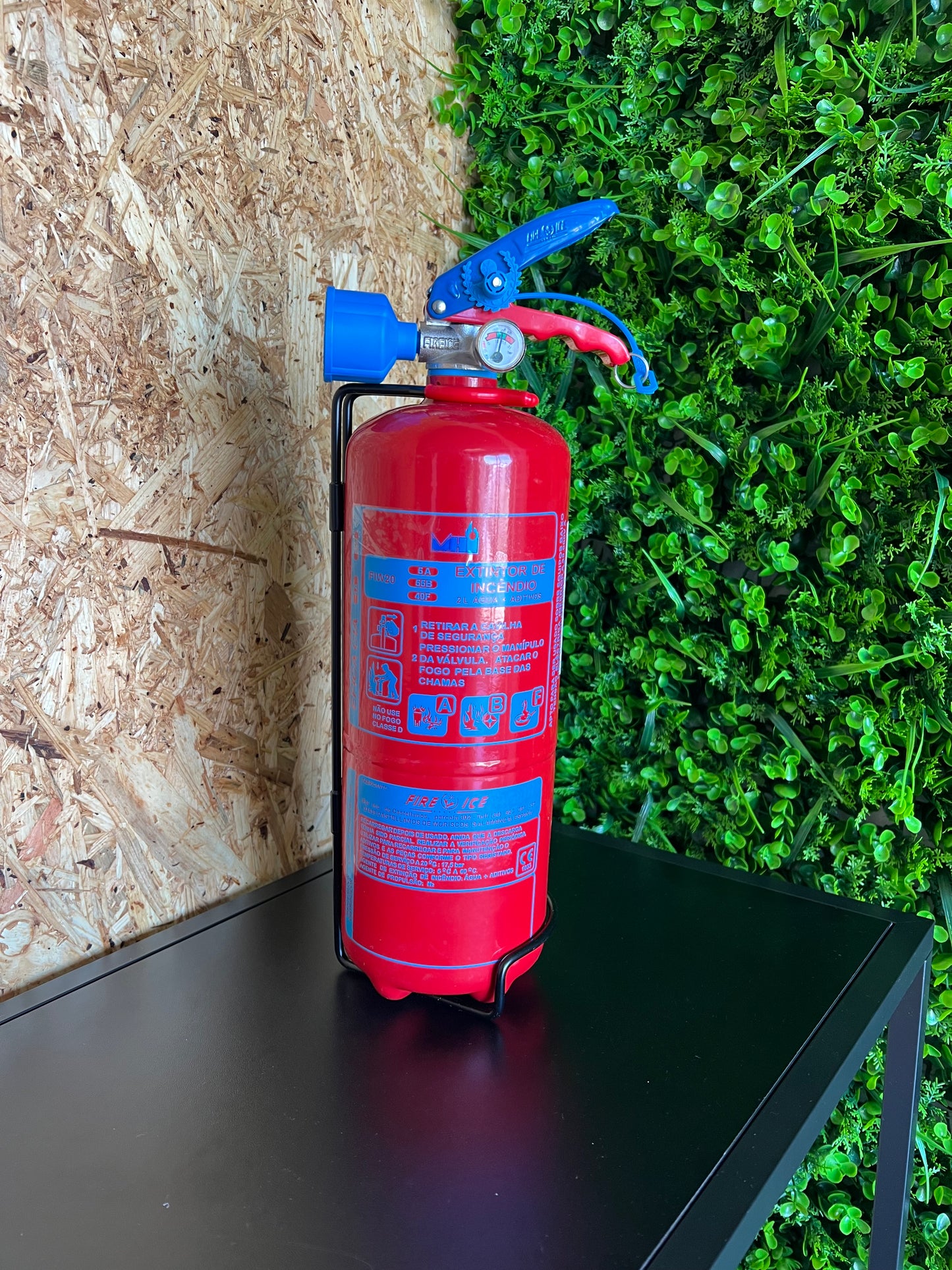
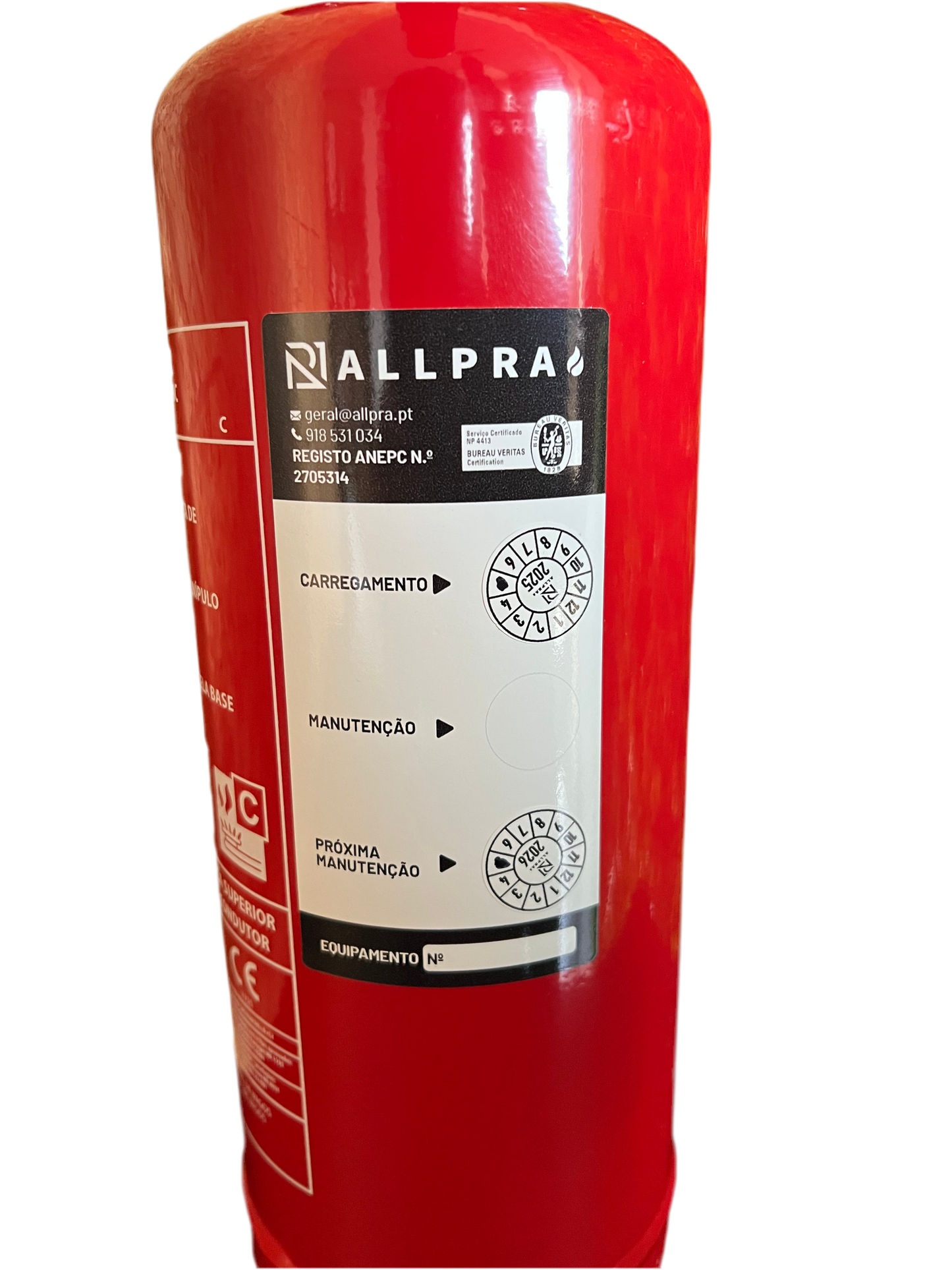
ExtintoresOnline.pt
Removable Tubular Support for Fire Extinguishers
Partilhar
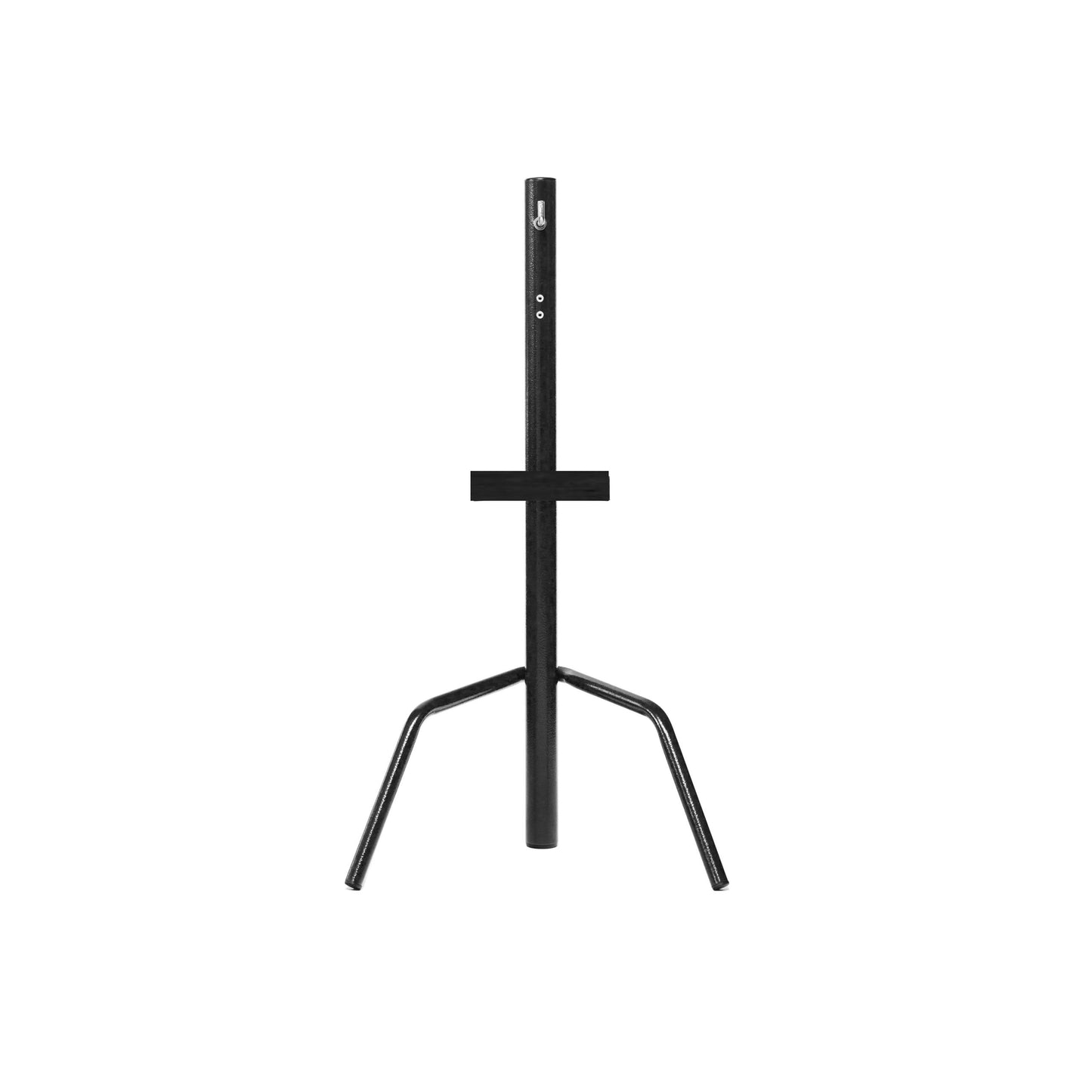
need help?
Collapsible content
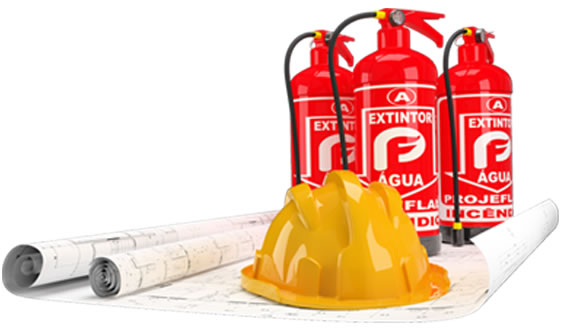
Are fire extinguishers mandatory?
Fire extinguishers: are they mandatory or recommended?
Fire extinguishers are designed to combat uncontrolled fires. Any type of fire that gets out of control is dangerous and must be extinguished, preferably with the use of a fire extinguisher. The need for a fire extinguisher can vary, from recommended for homes and cars to mandatory for commercial establishments. Regardless of the legal requirement, it is always wise to have one, as fire is extremely destructive and can be fatal if left unchecked.
Fire is one of mankind’s oldest enemies, and controlling a blaze can be very difficult. However, it is possible to fight it. The duration of the fire will determine the extent of the damage, so it is crucial to have a good fire-fighting system. Fire extinguishers play a vital role in fighting fires, helping to save lives and property.
Should I have a fire extinguisher at home or in my business?
-
At Home: For a home, it is highly recommended to have a fire extinguisher. Spray-type extinguishers, such as Extpray, are easy to handle and ideal for home use.
-
In Businesses: For a business, it is mandatory to have fire extinguishers. All commercial establishments must include a safety plan that includes fire extinguishers, with a minimum of one 6 kg dry powder extinguisher and one 2 kg CO2 extinguisher for the electrical panel.
Regulations
In companies, it is mandatory to comply with Decree-Law No. 220/2008 of November 12, which establishes the Legal Framework for Fire Safety in Buildings. The maintenance of fire extinguishers must follow Portuguese regulation NP4413.
Placement and location of fire extinguishers
Fire extinguishers should be placed so that the maximum distance between them does not exceed 15 meters. For example, for a room of 100m², it is common to have two 6 kg powder or 6 kg foam extinguishers, in addition to a 2 kg CO2 extinguisher for the electrical panel.
Should I take a course to use fire extinguishers?
It is not mandatory to take a course to use fire extinguishers, although it may be required by companies as part of Occupational Risk Protection. There are courses available for those interested in learning more about firefighting.
Fire prevention
Prevention is always the best strategy. It is essential to have the best tools and knowledge to put out a fire, whether at home or at work. This can save lives and protect your property.
Find out which extinguisher to choose!
Find the ideal fire extinguisher for your space and learn how to use it safely
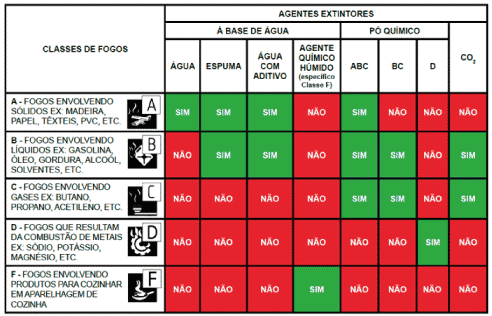
Fire extinguishers are active fire protection equipment that are essential to prevent small fires from becoming major disasters. Although they are not intended to fight large fires, they are effective in preventing an initial fire from spreading.
History of Fire Extinguishers
The first records of fire extinguishers date back to 1723. Since then, they have evolved to become essential in fire protection, providing a first line of defense in emergency situations.
Types of Fire Extinguishers and Their Applications
The choice of the appropriate extinguisher should be based on the specific risk of the location and the type of combustible material present. Each class of fire requires a specific type of extinguisher:
CLASS A
Suitable for fires involving solid materials of an organic nature, such as wood, paper, coal or textiles. The recommended extinguishers are:
- Water-based fire extinguishers
- Foam extinguishers
- ABC Dry Chemical Powder Fire Extinguishers
- Hydrofluorocarbon fire extinguishers
CLASS B
For fires involving combustible liquids, use:
- Foam extinguishers
- Water extinguishers with additive
- Dry chemical powder fire extinguishers BC or ABC
- Carbon dioxide extinguishers
- Hydrofluorocarbon (HFC) fire extinguishers
CLASS C
Fires involving combustible gases require:
- Dry chemical powder fire extinguishers type BC or ABC
- Hydrofluorocarbon (HFC) fire extinguishers
CLASS D
Fires involving light metals such as sodium, potassium, aluminum, magnesium or lithium require:
- Dry chemical fire extinguishers D (check compatibility with specific metal)
CLASS F
For fires involving cooking oils and fats, suitable extinguishers are:
- Fire extinguishers with a wet chemical agent (a solution of water and potassium acetate, which transforms oils and fats into a soapy substance)
Safety in Using Fire Extinguishers
Remember that fire extinguishers have a limited charge and can run out in seconds. Therefore, it is essential to know how to use them correctly. If in doubt, it is recommended that you take specific training courses on the use of fire extinguishers.
Prevention and Safety
Prevention is always the best defense against fires. Equipping your space with the proper fire extinguishers and ensuring everyone knows how to use them is essential for everyone’s safety. Don’t wait for an emergency to prepare – invest in protecting your space today.
For more information and to purchase the ideal extinguisher for your space, visit ExtintoresOnline.pt and contact our ANEPC certified team .
Meaning NP4413
![]()
NP 4413 is an essential standard for ensuring fire safety in Portugal. It establishes the requirements for the maintenance of fire extinguishers, ensuring that this equipment is always in perfect working order.
Complying with NP 4413 is crucial to:
- Ensure Efficiency: Well-maintained extinguishers are more effective in preventing and fighting fires.
- Comply with the Law: Companies that follow the law avoid fines and legal sanctions.
- Protecting Lives and Property: Properly maintaining fire extinguishers can save lives and minimize property damage in the event of a fire.
In short, NP 4413 is vital for everyone’s safety and protection.
SCIE what is it?
![]()
Fire Safety in Buildings (FSB) is a set of measures and standards designed to ensure the protection of people and property against fires in buildings. In Portugal, FSB is governed by Decree-Law No. 220/2008, which establishes the technical and organizational requirements necessary to prevent and combat fires.
SCIE covers:
- Prevention: Implementation of measures that reduce the risk of fires occurring.
- Passive Protection: Use of materials and construction techniques that slow the spread of fire.
- Active Protection: Installation of fire detection, alarm and fighting systems, such as extinguishers and sprinklers.
- Training and Simulation: Regular training of occupants and carrying out evacuation exercises.
Following SCIE standards is essential to ensure the safety of everyone who uses a building, ensuring that, in the event of a fire, appropriate measures are in place to minimize risks and damage.
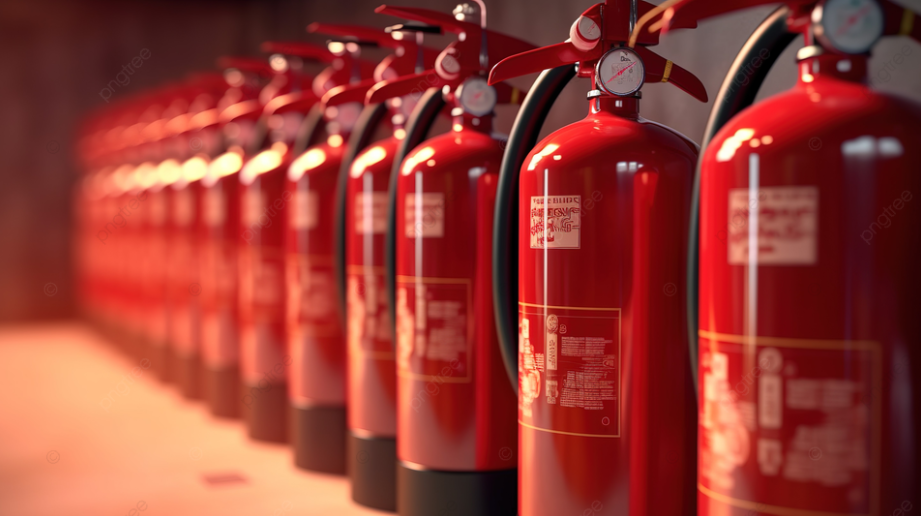
ABF Fire Extinguishers
Class A : Fire involving any material that leaves an ember or ash. The ideal method for extinguishing a Class A fire is by removing the heat. Water is the most common agent, but others such as dry chemical, halon, halogenated agents and foam can be used effectively. Ex: Paper, textiles, PVC, among others. Class B : Fire involving flammable liquid. A variety of extinguishing agents are used for fires involving flammable liquids, depending on the circumstances involved. Flammable liquids do not generate a fire in their liquid state. It is the vapors generated by them that ignite. Ex: Gasoline, oil, fat, alcohol, solvents, among others. Class F : In the case of fires involving cooking products, such as vegetable or animal oils and fats (Class F fires), the most appropriate fire extinguishers are those that use a wet chemical extinguishing agent, a solution of water and potassium acetate that transforms the oils and fats used for cooking into a soapy substance. Ex: Oils, vegetable or animal fats, among others.



